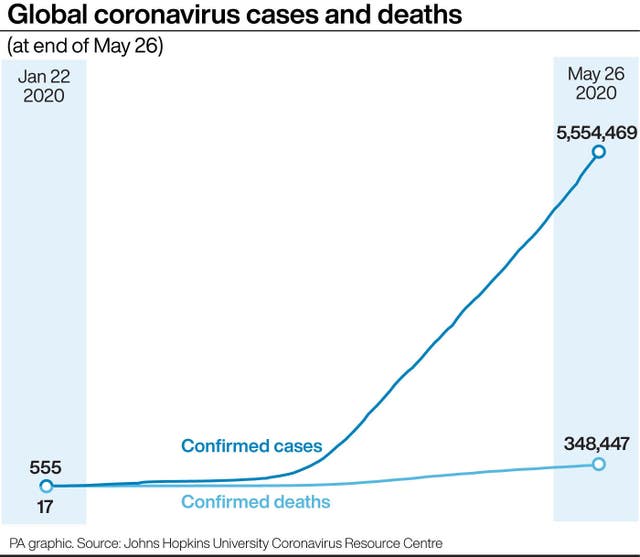/cloudfront-us-east-1.images.arcpublishing.com/expressandstar.mna/KVHZLVZAZVAWDGGTGIY5PDSYUU.jpg)
More than 500 scientists to map Covid-19 effects and treatments in blood
Mass spectrometry will be used with the aim of refining testing approaches, looking at treatment options, and determining isolation requirements.
More than 500 scientists from around the world have formed a coalition to share data on coronavirus based on techniques which examine people’s blood.
The Covid-19 MS Coalition is made up of leading mass spectrometry experts who will work together to look at the ways the virus is present in patients’ blood and examine how it is structured.
The aim is to refine testing approaches, look at treatment options, and determine isolation requirements.
Mass spectrometry (MS) is able to measure molecules that change in a patient’s blood as the infection takes hold.

It can be used to find out what they are, and how many of them there are.
The coalition, announced in The Lancet, and coordinated from The University of Manchester, is looking for biomarkers that will determine how a given individual will respond to the virus.
These allow hospital labs to predict the outcome of the disease and to target treatment accordingly.
Mass spectrometry will also help develop effective treatments by targeted studies that measure the decrease in these markers.
Professor Perdita Barran, director of the Michael Barber Centre for Collaborative Mass Spectrometry, at The University of Manchester, said: “By cooperating in this way, the scientists working in the coalition will have access to many more sources of data from around the world.
“We will be pooling our expertise and we believe we will be able to work much faster and have an impact on a range of priorities; from testing, to treatment and vaccination.”